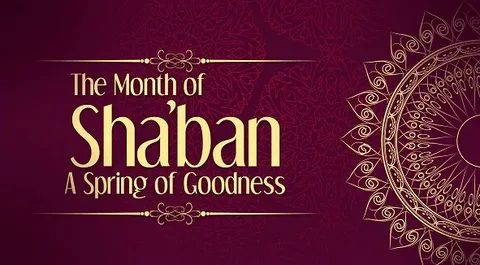The Islamic calendar, also known as the Hijri calendar, is a lunar system deeply rooted in Islamic tradition. One of its most significant months is Rajab, a sacred period marked by spiritual reflection and historical importance. But which month after rajab, and why is it essential? Let’s dive into the rich tapestry of the Islamic months to explore the significance of Sha’ban, the month that follows Rajab.
What is the Hijri Calendar?
The Hijri calendar is based on the lunar cycle, consisting of 12 months of either 29 or 30 days. It begins with the month of Muharram and concludes with Dhu al-Hijjah. This calendar is approximately 11 days shorter than the Gregorian calendar.
Key Features and Structure
The Islamic calendar plays a vital role in religious observances, such as Ramadan, Hajj, and Eid celebrations. Each month carries unique significance, with Rajab and Sha’ban being particularly special in preparation for Ramadan.
What Are the Sacred Months?
The sacred months are four specific months in the Islamic calendar. They are distinguished as times when acts of worship and good deeds are especially encouraged, and sinful actions are even more severely discouraged. Allah states in the Quran:
“Indeed, the number of months with Allah is twelve [lunar] months in the register of Allah from the day He created the heavens and the earth; of these, four are sacred.” (Surah At-Tawbah, 9:36)
The four sacred months are:
- Rajab: A standalone sacred month.
- Dhu al-Qa’dah: The 11th month of the Islamic calendar.
- Dhu al-Hijjah: The 12th month, known for Hajj and Eid al-Adha.
- Muharram: The first month of the Islamic calendar, also known as the Month of Allah.
Rajab: A Sacred Month
Rajab is one of the four sacred months in Islam, during which fighting is prohibited. This month is revered for its spiritual tranquility and historical events, including the Isra and Mi’raj (the Night Journey of Prophet Muhammad, peace be upon him).
Muslims often increase acts of worship, including extra prayers, fasting, and giving charity, to honor the sanctity of Rajab.
which month after rajab

The month that follows Rajab is Sha’ban, the eighth month in the Islamic calendar.
Sha’ban’s Position in the Islamic Calendar
Situated between Rajab and Ramadan, Sha’ban serves as a preparatory period for the holy month of fasting.
The name Sha’ban is derived from the Arabic root word “sh’ab,” meaning to disperse. It signifies the dispersion of goodness during this month.
Sha’ban is known as a time for heightened devotion and reflection. One significant event is the Mid-Sha’ban night, also called Laylat al-Bara’ah.
Events Associated with Sha’ban
The most notable event in Sha’ban is the shifting of the Qiblah (direction of prayer) from Jerusalem to Mecca during the lifetime of the Prophet Muhammad (peace be upon him).
Religious Practices in Sha’ban

Fasting in Sha’ban Prophet Muhammad (peace be upon him) emphasized fasting during Sha’ban, saying it prepares the soul for the rigorous fasting of Ramadan.
Preparing for Ramadan
Muslims use Sha’ban to enhance their worship, reconnect with the Quran, and develop habits that will sustain them through Ramadan.
Night of Nisf Sha’ban
The 15th night of Sha’ban is a special time for prayers and seeking forgiveness. It’s a spiritual milestone in anticipation of Ramadan.
Rajab, Sha’ban, and Ramadan
Rajab shaban ramadan These three months form a spiritual continuum. Rajab opens the heart, Sha’ban fine-tunes devotion, and Ramadan brings the ultimate reward of fasting and closeness to Allah.
HOW Arabian tongue shapes your journey of LEARNing QURAN and arabic?
At Arabian Tongue, we empower you with the tools that allow for reflecting on the meanings of the Quran and sensing the greatness of the Creator. We incorporate unique teaching methods in our courses listed below:
- Learn Quran Online
- Online Arabic Classes
- Learn Tagweed Online
- Arabic grammar course online for beginners
- Quran Ijazah Course for Kids
FAQs
What are the sacred months in Islam?
The four sacred months are Rajab, Dhu al-Qa’dah, Dhu al-Hijjah, and Muharram.
What makes Sha'ban special compared to other months?
Sha'ban is marked by increased fasting, devotion, and the significant event of Mid-Sha'ban.
Why do Islamic months shift every year?
The lunar calendar is about 11 days shorter than the solar year, causing Islamic months to shift annually.
How do Muslims observe the Night of Nisf Sha'ban?
Muslims pray, seek forgiveness, and engage in acts of charity during this special night.
What role does Sha'ban play in preparing for Ramadan?
Sha'ban helps Muslims develop habits of worship, fasting, and reflection, setting a spiritual foundation for Ramadan.
Conclusion
The month following Rajab is Sha’ban, a vital time in the Islamic calendar. It’s not just a transition to Ramadan but a period of unique blessings and opportunities for spiritual growth. By embracing the practices of Sha’ban, Muslims prepare themselves for the sacred journey of Ramadan.


